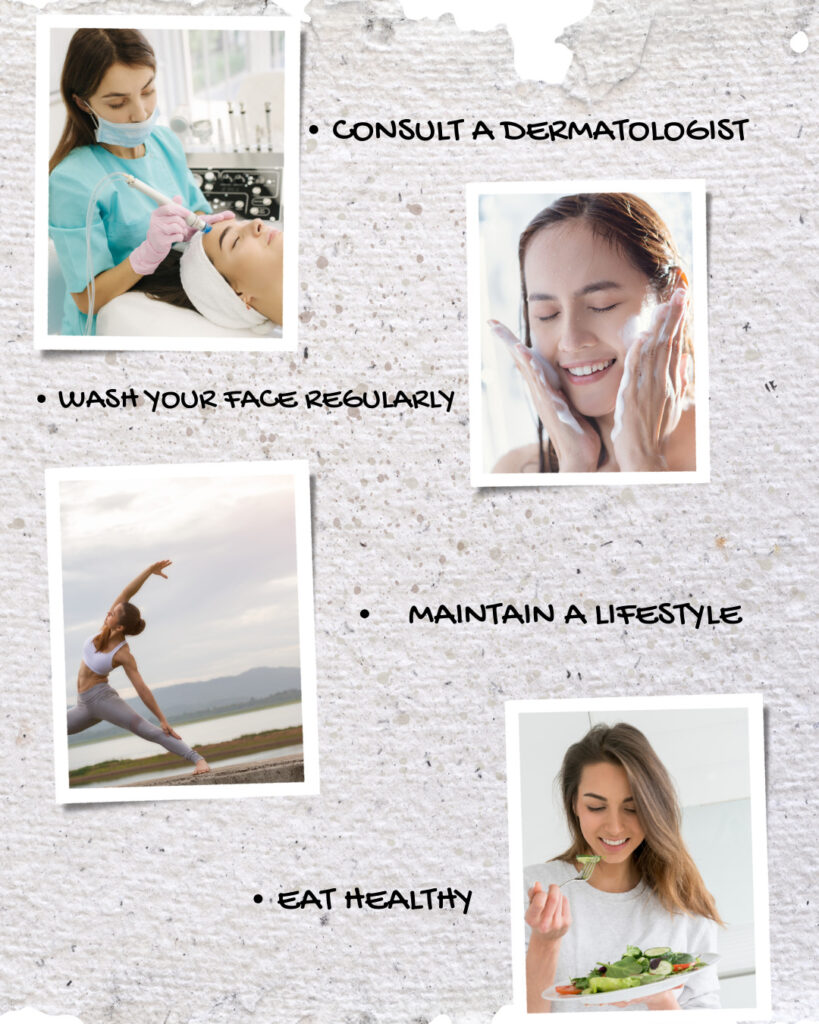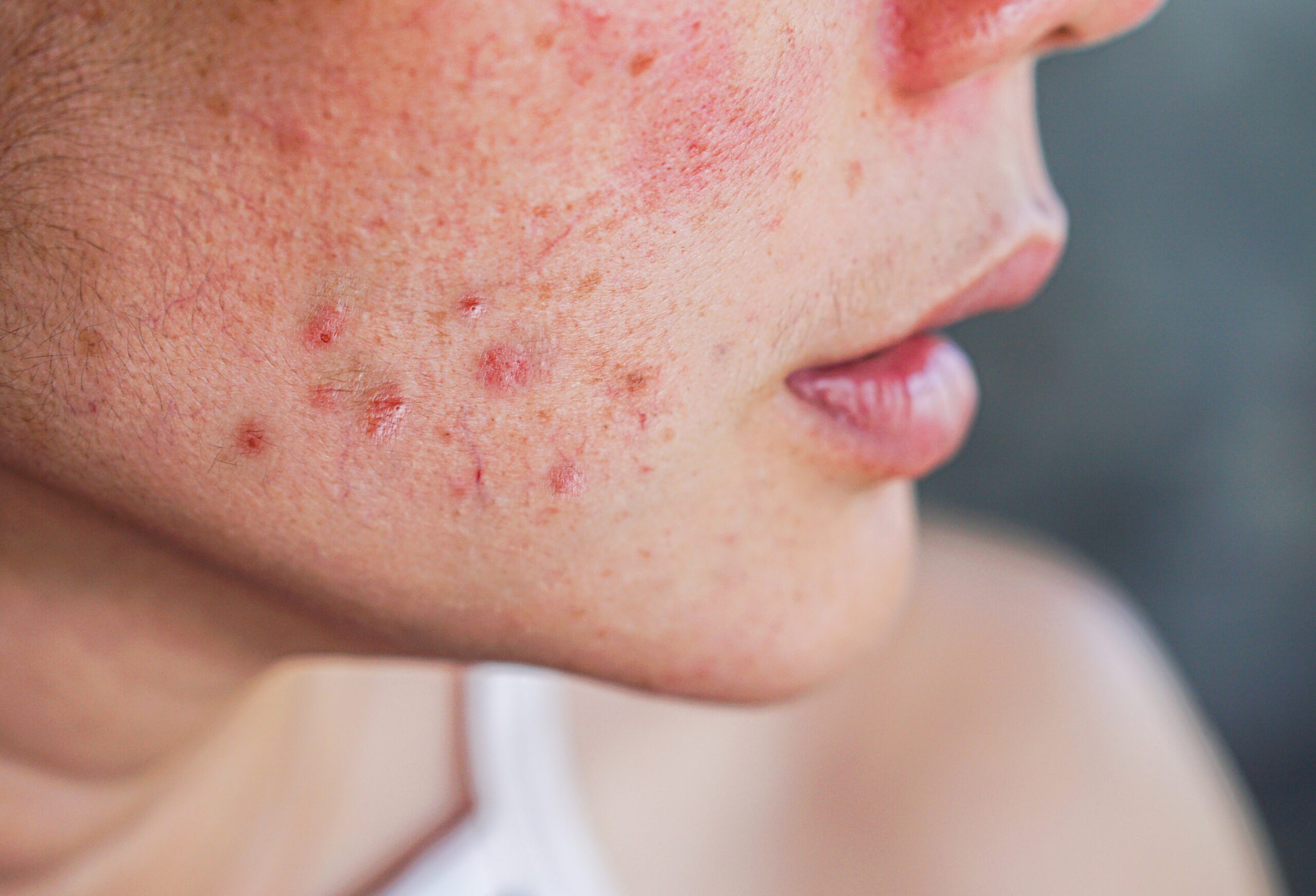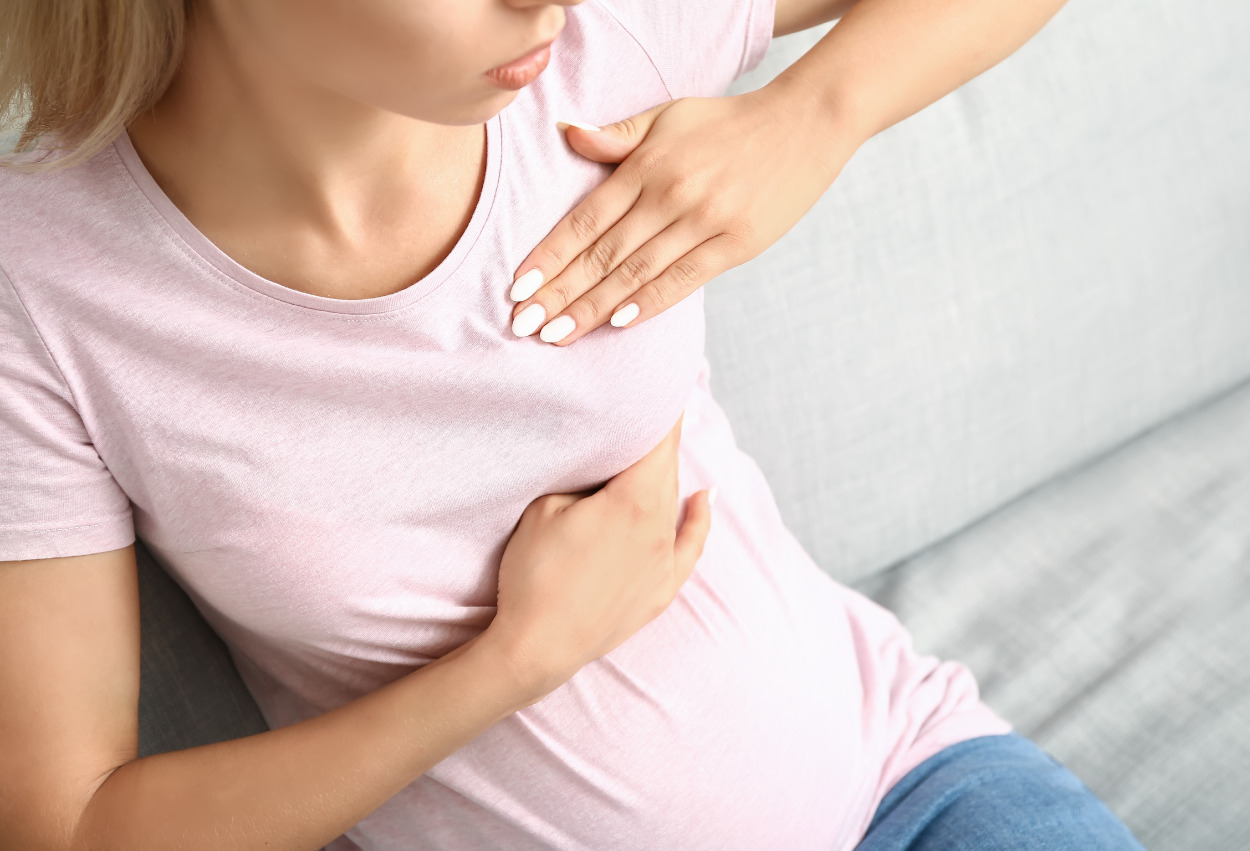Dr Ankita S
MBBS, MS, DNB OBGY
Polycystic ovarian syndrome (PCOS) affects one in ten women of reproductive age, leading to an imbalance in hormones and various symptoms such as missed periods, hair loss, fertility issues, and increased facial hair. Among the lesser-known complications linked to Polycystic ovarian syndrome is the occurrence of acne. Dealing with acne caused by conditions like PCOS/PCOD can be distressing due to the presence of acne scars and persistent breakouts. In this blog post, we will explore the connection between PCOS and acne, delve into the underlying factors contributing to this association, and discuss effective management strategies.
What causes acne on skin?
The imbalanced hormone levels associated with Polycystic ovarian syndrome can trigger several changes in the skin, leading to an oily complexion,making it more prone to acne. The excess sebum, along with dead skin cells and bacteria, can block the pores and create an environment favourable for acne formation. Furthermore, heightened androgen levels can increase inflammation in the skin, exacerbating existing acne or promoting new breakouts.
The connection between Polycystic ovarian syndrome and acne
Let us explore the factors causing acne. PCOS is a disease that causes your ovaries to overproduce androgen, or “male”, hormones such as testosterone .
Excess androgens play a key role in the development of acne for two reasons:
- It triggers your skin to produce more oil, which can clog pores and create pimples.
- Androgen hormones decrease the cell turnover in your pores causing dead skin and oil to build up and clog pores.
- Insulin resistance is a common problem in women with PCOS/PCOD, and can lead to increased levels of insulin in the bloodstream. Elevated insulin levels can trigger the production of androgen hormones, which can cause acne.
PCOS acne may variably differ from regular acne. In women with Polycystic ovarian syndrome, the acne will develop in areas like the chin, upper neck, and chest.
Skin care for managing PCOS/PCOD -related acne
Addressing the root cause of acne in Polycystic ovarian syndrome involves managing the hormonal imbalance and adopting a comprehensive skincare routine. If you have PCOS and acne, reach out to a dermatologist to treat your acne that could progress leading to stressful struggles. The following are a few tips to make better changes in your face to revive back your skin and reduce the number of acne.
- Wash your face often: to remove dust and dirt sticking on your skin that can make your skin oily and prone to acne.
- Consulting a healthcare professional: If you have Polycystic ovarian syndrome and are experiencing acne, it is essential to consult a dermatologist who can formulate a treatment plan to reduce your acne.
- Hormonal therapy: Depending on the severity of the symptoms, your healthcare provider may recommend hormonal therapy to regulate the levels of androgen hormones in your body. This can help reduce the production of sebum and alleviate acne symptoms.
- Dietary and lifestyle changes: Making dietary and lifestyle modifications can have a positive impact on PCOS symptoms and acne. A balanced diet that includes whole foods, low glycemic index carbohydrates, and healthy fats can help regulate insulin levels. Regular exercise, stress management, and adequate sleep can also contribute to overall hormonal balance and improved skin health.

Dermatologist care and intervention:
Dermatologists provide specialised care and interventions for PCOS/PCOD -related acne. They offer personalised treatment plans, including medications and topical treatments, to manage acne caused by hormonal imbalances in PCOS. Regular visits allow for monitoring and adjustments to improve skin health and overall well-being.
Conclusion
Polycystic ovarian syndrome and acne share a complex relationship, with hormonal imbalances playing a significant role in the development of acne symptoms. By understanding this connection and adopting appropriate management strategies, individuals with PCOS can effectively address their acne concerns and improve their overall well-being. Remember, seeking professional guidance and adopting a holistic approach to skincare and lifestyle can lead to positive outcomes and a renewed sense of confidence.
References
1.Zandi, S., Farajzadeh, S., & Safari, H. (2010). Prevalence of polycystic ovary syndrome in women with acne: hormone profiles and clinical findings. Journal of Pakistan Association of Dermatologists, 20(4), 194-198.
2. Hacivelioglu, S., Gungor, A. N. C., Gencer, M., Uysal, A., Hizli, D., Koc, E., & Cosar, E. (2013). Acne severity and the Global Acne Grading System in polycystic ovary syndrome. International Journal of Gynecology & Obstetrics, 123(1), 33-36.
3. Yen, H., Chang, Y. T., Yee, F. J., & Huang, Y. C. (2021). Metformin therapy for acne in patients with polycystic ovary syndrome: a systematic review and meta-analysis. American Journal of Clinical Dermatology, 22, 11-23.
4.Archer, J. S., & Chang, R. J. (2004). Hirsutism and acne in polycystic ovary syndrome. Best Practice & Research Clinical Obstetrics & Gynaecology, 18(5), 737-754.
Frequently Asked Questions
Apart from hormonal imbalances, factors such as stress, diet, and genetics can exacerbate acne in individuals with PCOS. Adopting a holistic approach to managing PCOS and acne is essential for better results.
A dermatologist can recommend tailored skincare routines, including topical treatments and prescription medications, to address acne related to PCOS effectively.
PCOS causes an imbalance in hormones, particularly increased androgens (male hormones), which stimulate the sebaceous glands to produce more sebum. The excess sebum can clog pores and lead to acne formation.
Women with PCOS have a wide range of symptoms and acne is the most common symptom affecting 10-34% of women with PCOS
PCOS causes acne breakouts on the face which can range from mild to severe. Of course, with proper treatment and consulting a dermatologist will help you treat acne.Salicylic acid antibiotics, like erythromycin or clindamycin retinoids, such as retinol benzoyl peroxide and topical antibiotics are some medicines that help in acne breakouts. Currently there is no cure for PCOS, but consulting a doctor and adapting to a healthy lifestyle with proper diet help to ease the symptoms in the long term.
Dr Ankita S
MBBS, MS, DNB OBGY
Varshini
M.Tech Food Biotechnologist
Varshini
M.Tech Food Biotechnologist
Related Blogs
- How to prevent Prediabetes from Turning into DiabetesSeptember 19, 2023
- Unravelling the connection: insulin Resistance and PCOSSeptember 8, 2023







